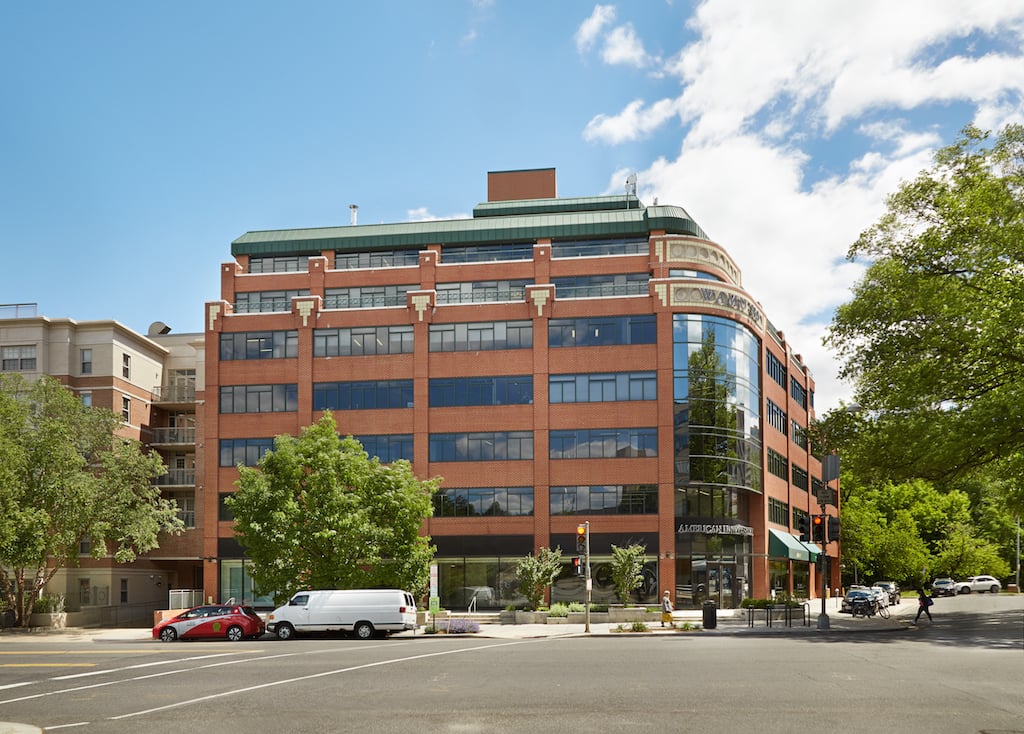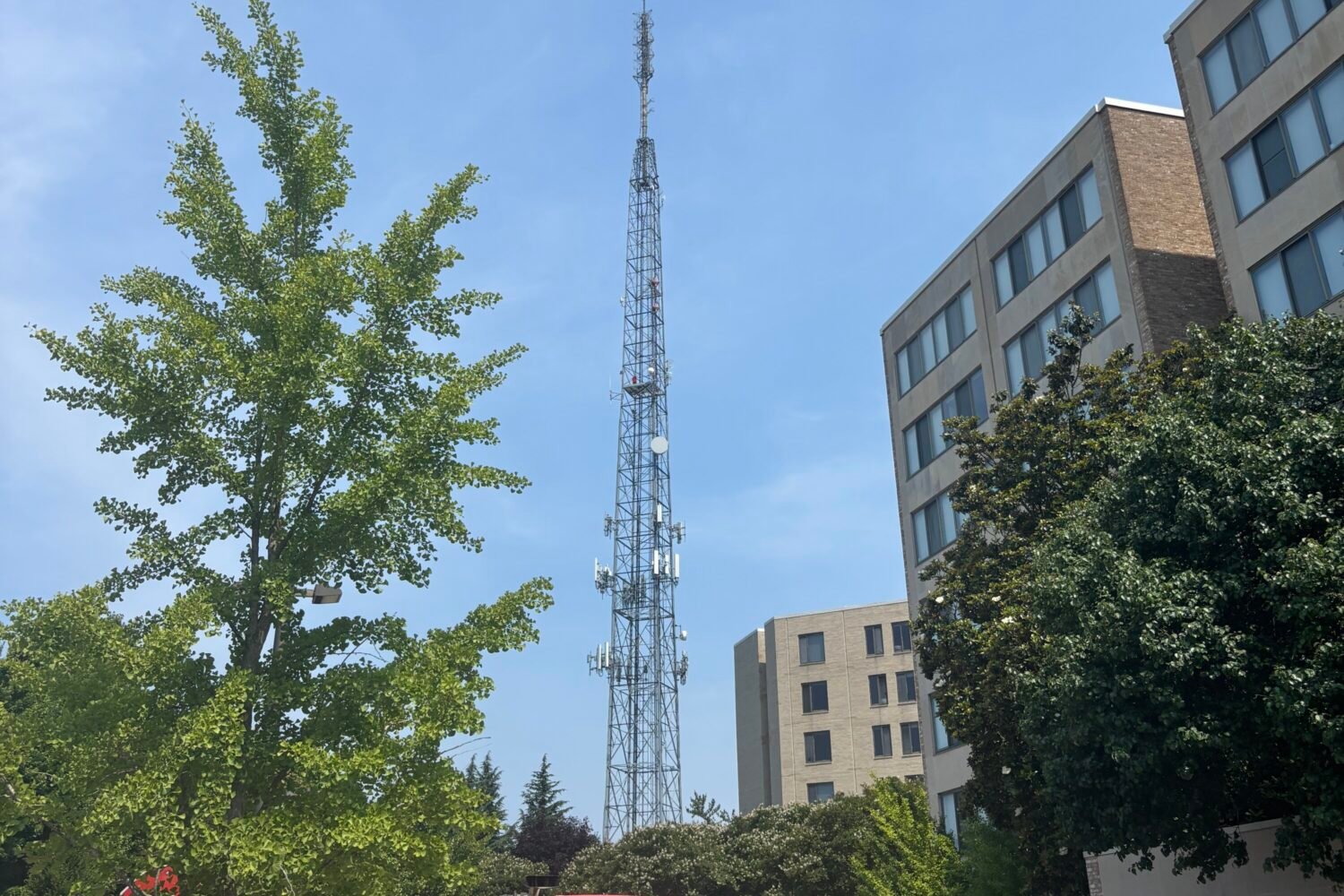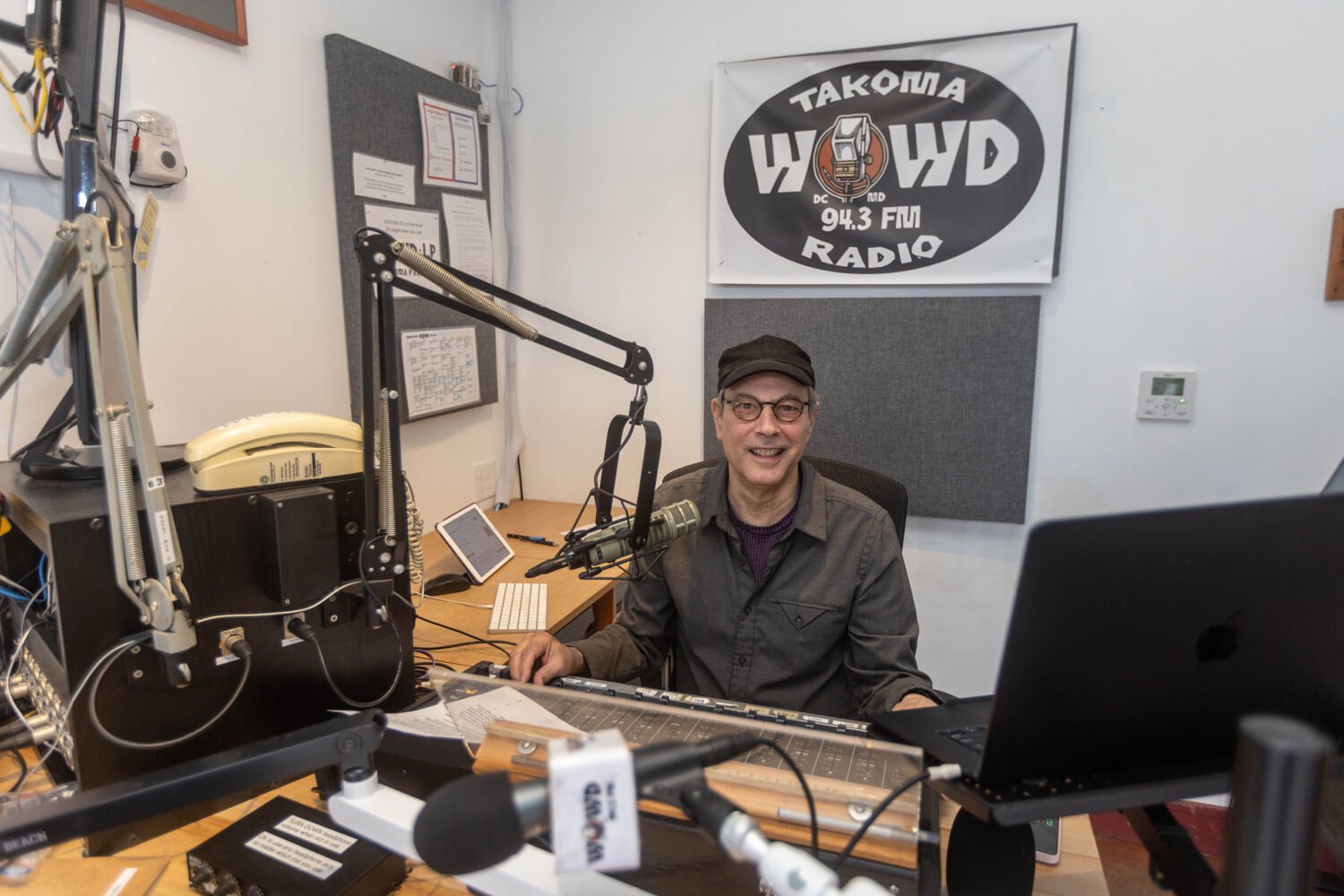The DC-area public radio station WAMU finished its 2017 fiscal year in April with an operating surplus of more than $300,000, the first time the station has ended in the black since 2013.
Donations from listeners and a favorable distribution deal with NPR for the station’s new show 1A helped nudge WAMU into profitability, general manager J.J. Yore says. The station has also seen a 21 percent rise in the number of memberships, many of which were added after Donald Trump was elected president last November.
The financial gains are concurrent with a big rise in overall listeners for the station, which has undergone big changes since Yore took it over in August 2014. 1A replaced The Diane Rehm Show, which ended when its host retiremed last December. The station’s newsroom has shifted its emphasis from spot news, doing more enterprise reporting on topics of interest to the whole region. And WAMU cut its last tie to its bluegrass origins when it handed off its Bluegrass Country service in January. The gamble seems to have paid off: It’s now the top radio station in the area and clocked a 22 percent rise in listenership from winter 2016 to winter 2017, including—remarkably for a public-radio station—notable gains in African-American and Latino listeners.
Yore says that as recently as December WAMU thought it would again finish at a loss because it spent a lot of money to ramp down The Diane Rehm Show and launch its replacement 1A. But the station saw a surge of about 4,000 memberships during a drive in December, perhaps inspired by the presidential election, and 4,000 more the next month when there was no campaign. In all, it went from 58,598 members at the beginning of May 2016 to 71,072 by this May 1. “I’m told this is the fastest growth in membership in the system,” Yore says.
WAMU is owned by American University, and a deal it did in 2012 to move into a renovated AU building has added consistent financial pressure. The station has not only had to pay American about $2 million each year to lease the building, it also had to borrow about $6 million from the university to outfit it. Yore says WAMU has renegotiated several aspects of its financial relationship with the university, including lower rent, lower overhead costs (it currently pays about $3 million per year for those, which include shared services), and a reduction on the amount it owes on that loan–it will now pay about $550,000 a year for the next decade, saving about $300,000 over the life of the note.
It’s important to reduce the amount of money going out, but WAMU has seen a good amount of more money coming in the last year, not just from those memberships and a late surge in corporate underwriting, but also from a three-and-a-half-year-long deal it did with NPR to get 1A off the ground. Yore didn’t want to say how much was involved, but a year-end spreadsheet for the station shows program revenue jumping from $210,000 to more than $1 million. When it became apparent Rehm would leave, Yore says he recognized WAMU was in a “tight financial situation” and went to NPR asking it to put up more money in return for a higher percentage of any return from the show. (NPR member stations pay the network to broadcast shows such as 1A.)
NPR declined to expound on the deal: “Each of our business deals with partners is unique, and we don’t comment on the details,” NPR spokesperson Ben Fishel writes in an email to Washingtonian. “We’re thrilled to be working with 1A and are very proud of the show’s success.”
The surplus may not be apparent in the next annual report, Yore says, because AU’s accounting firm calculates depreciation of the building into its results. But operationally, the $300,000 is there. If you’re a WAMU employee hoping to tap that honey pot for a sweet raise, sorry–the extra cash will go into a reserve fund the station is building up with the goal of having four to six months of financial reserves–not a bad plan if the Trump Administration achieves its goal of eliminating funds for public broadcasting. WAMU receives about $1.2 million in federal funding a year. “The uncertainty about federal funding has caused us to be more conservative about our spending,” Yore says.




















